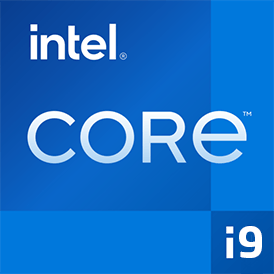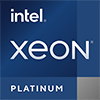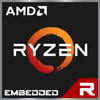
Intel Core i9-9880H Benchmark, test e specifiche
Ultimo aggiornamento:
Intel Core i9-9880H è un core processor 8. Può gestire 16 thread contemporaneamente ed è stato introdotto il Q2/2019. Si basa sul 9. Gen della serie Intel Core i9 e richiede una scheda madre con il socket BGA 1440. Intel Core i9-9880H ottiene 1.127 punti con un core CPU nel benchmark Geekbench 5. Quando si utilizzano tutti i core della CPU, il risultato è 6.114 punti.

| Cognome: | Intel Core i9-9880H |
|---|---|
| Famiglia: | Intel Core i9 (78) |
| Gruppo CPU: | Intel Core i 9000H (11) |
| Architettura : | Coffee Lake H Refresh |
| Segmento: | Mobile |
| Generazione: | 9 |
| Predecessore: | -- |
| Successore: | -- |
CPU Cores e frequenza di base
I 8 core della CPU del Intel Core i9-9880H clock con 2,30 GHz (4,80 GHz). Il numero di core della CPU e la frequenza di clock del processore sono in gran parte responsabili delle prestazioni complessive.
| CPU Cores / Threads: | 8 / 16 |
|---|---|
| Architettura principale: | normal |
| Cores: | 8x |
| Hyperthreading / SMT: | Si |
|---|---|
| Overclocking: | No |
| Frequenza: | 2,30 GHz |
| Turbo Frequenza (1 Core ): | 4,80 GHz |
| Turbo Frequenza (8 Cores): | 3,40 GHz |
Grafica interna
Con Intel UHD Graphics 630, Intel Core i9-9880H ha una grafica integrata. Questo ha 24 processori SM, che hanno un totale di 192 texture shader. L'iGPU non solo abilita i giochi, ma accelera anche in modo significativo la riproduzione di video, ad esempio.
| nome GPU: | Intel UHD Graphics 630 |
|---|---|
| Frequenza GPU : | 0,35 GHz |
| GPU (Turbo ): | 1,20 GHz |
| Unità di esecuzione: | 24 |
| Shader: | 192 |
| Hardware Raytracing: | No |
| Data di lancio : | Q4/2017 |
| Max. visualizzazioni: | 3 |
|---|---|
| Generation: | 9.5 |
| Direct X: | 12 |
| Tecnologia : | 14 nm |
| Max. GPU Memoria: | 64 GB |
| Frame Generation: | No |
Hardware codec support
I processori con grafica integrata possono elaborare e riprodurre video in modo più rapido ed efficiente. Ciò può avere un effetto positivo sulla durata della batteria dei notebook, ad esempio.
| h265 / HEVC (8 bit): | Decodificare / Codificare |
|---|---|
| h265 / HEVC (10 bit): | Decodificare / Codificare |
| h264: | Decodificare / Codificare |
| VP8: | Decodificare / Codificare |
| VP9: | Decodificare / Codificare |
| AV1: | No |
|---|---|
| AVC: | Decodificare / Codificare |
| VC-1: | Decodificare |
| JPEG: | Decodificare / Codificare |
Memoria & PCIeIntel Core i9-9880H supporta fino a 128 GB memoria in un massimo di 2 (Dual Channel) canali di memoria. Ciò si traduce in una larghezza di banda di memoria massima di 42,7 GB/s. |
|
| Tipo di memoria : | Banda di memoria: |
|---|---|
| LPDDR3-2133 DDR4-2666 | 34,2 GB/s 42,7 GB/s |
| Max. Memoria: | 128 GB |
| Canali di memoria : | 2 (Dual Channel) |
| ECC: | No |
| PCIe: | 3.0 x 16 |
| PCIe Larghezza di banda: | 15,8 GB/s |
Gestione termicaCon il TDP, il produttore del processore specifica la soluzione di raffreddamento necessaria per il processore. Intel Core i9-9880H ha un TDP di 45 W. |
|
|---|---|
| TDP (PL1 / PBP): | 45 W |
| TDP (PL2): | -- |
| TDP up: | -- |
| TDP down: | 35 W |
| Tjunction max.: | 100 °C |
Dettagli tecnici
Intel Core i9-9880H ha una cache grande 16,00 MB. Il processore è prodotto in %%Manufacturing%%. La produzione moderna aumenta l'efficienza del processore.
| Tecnologia : | 14 nm |
|---|---|
| Design a chip: | Monolitico |
| Presa: | BGA 1440 |
| L2-Cache: | -- |
| L3-Cache: | 16,00 MB |
| AES-NI: | Si |
| Sistemi operativi: | Windows 10, Windows 11, Linux |
| Virtualizzazione: | VT-x, VT-x EPT, VT-d |
|---|---|
| Set di istruzioni (ISA): | x86-64 (64 bit) |
| Estensioni ISA: | SSE4.1, SSE4.2, AVX2 |
| Data di lancio : | Q2/2019 |
| Prezzo di rilascio: | 550 $ |
| Numero di parte: | -- |
| Documenti: | Scheda tecnica |
Valuta questo processore
Risultati di benchmark

I risultati del benchmark per Intel Core i9-9880H sono stati attentamente controllati da noi. Pubblichiamo solo risultati di benchmark che sono stati creati da noi o che sono stati inviati da un visitatore e poi controllati da un membro del team. Tutti i risultati sono basati e rispettano le nostre linee guida di benchmark.
Cinebench 2024 (Single-Core)
Il benchmark Cinebench 2024 si basa sul motore di rendering Redshift, utilizzato anche nel programma 3D di Maxon Cinema 4D. Le corse di benchmark durano 10 minuti ciascuna per testare se il processore è limitato dalla generazione di calore.

|
AMD Ryzen 5 4600H
6C 12T @ 4,00 GHz |
||

|
Intel Core i7-5775R
4C 8T @ 3,80 GHz |
||

|
Intel Core i9-9980HK
8C 16T @ 5,00 GHz |
||
|
|
Intel Core i9-9880H
8C 16T @ 4,80 GHz |
||

|
AMD Ryzen 5 PRO 5650U
6C 12T @ 4,20 GHz |
||

|
Intel Core i7-1185G7
4C 8T @ 4,80 GHz |
||

|
Intel Core i9-10920X
12C 24T @ 4,80 GHz |
||
Cinebench 2024 (Multi-Core)
Il test Multi-Core del benchmark Cinebench 2024 utilizza tutti i core della CPU per eseguire il rendering utilizzando il motore di rendering Redshift, utilizzato anche in Maxons Cinema 4D. L'esecuzione del benchmark dura 10 minuti per verificare se il processore è limitato dalla generazione di calore.

|
Intel Core i7-5960X
8C 16T @ 3,50 GHz |
||

|
AMD Ryzen 7 7730U
8C 16T @ 4,50 GHz |
||

|
AMD Ryzen 7 PRO 7730U
8C 16T @ 4,50 GHz |
||
|
|
Intel Core i9-9880H
8C 16T @ 4,80 GHz |
||

|
Intel Core i5-10600KF
6C 12T @ 4,80 GHz |
||

|
Intel Core i5-10600K
6C 12T @ 4,80 GHz |
||

|
AMD Ryzen 5 4600HS
6C 12T @ 4,00 GHz |
||
Cinebench R23 (Single-Core)
Cinebench R23 è il successore di Cinebench R20 ed è anch'esso basato su Cinema 4D. Cinema 4D è un software usato a livello mondiale per creare forme in 3D. Il test single-core utilizza solo un nucleo elaborativo della CPU. A tal fine, il numero di nuclei elaborativi o la capacità di hyperthreading non sono rilevanti.

|
Intel Core i3-10105
4C 8T @ 4,40 GHz |
||

|
Intel Core i3-10105F
4C 8T @ 4,40 GHz |
||

|
AMD Ryzen 5 5500U
6C 12T @ 4,00 GHz |
||
|
|
Intel Core i9-9880H
8C 16T @ 4,80 GHz |
||

|
AMD Ryzen 3 PRO 4350GE
4C 8T @ 4,00 GHz |
||

|
AMD Ryzen 3 PRO 4350G
4C 8T @ 4,00 GHz |
||

|
AMD Ryzen 5 4600U
6C 12T @ 4,00 GHz |
||
Cinebench R23 (Multi-Core)
Cinebench R23 è il successore di Cinebench R20 ed è anch'esso basato su Cinema 4D. Cinema 4D è un software usato a livello mondiale per creare forme in 3D. Il test multi-core coinvolge tutti i nuclei elaborativi della CPU e si avvale del hyperthreading.

|
AMD Ryzen 7 1700X
8C 16T @ 3,60 GHz |
||

|
AMD Ryzen 7 PRO 1700X
8C 16T @ 3,60 GHz |
||

|
AMD Ryzen 5 4600HS
6C 12T @ 4,00 GHz |
||
|
|
Intel Core i9-9880H
8C 16T @ 3,40 GHz |
||

|
Apple M2 (8-GPU)
8C 8T @ 3,50 GHz |
||

|
Apple M2
8C 8T @ 3,50 GHz |
||

|
Intel Core i7-9700F
8C 8T @ 3,80 GHz |
||
Geekbench 5, 64bit (Single-Core)
Geekbench 5 è un benchmark multi-piattaforma che usa in modo intensivo la memoria del sistema.Il test single-core utilizza solo un nucleo elaborativo della CPU. A tal fine, il numero di nuclei elaborativi o la capacità di hyperthreading non sono rilevanti.

|
Intel Xeon E3-1230 v5
4C 8T @ 3,80 GHz |
||

|
Intel Xeon Platinum 8260Y
24C 48T @ 3,90 GHz |
||

|
Intel Xeon Platinum 8280L
28C 56T @ 4,00 GHz |
||
|
|
Intel Core i9-9880H
8C 16T @ 4,80 GHz |
||

|
Intel Xeon Gold 6246R
16C 32T @ 4,10 GHz |
||

|
Intel Core i7-8665U
4C 8T @ 4,80 GHz |
||

|
Intel Core i3-1005G1
2C 4T @ 3,40 GHz |
||
Geekbench 5, 64bit (Multi-Core)
Geekbench 5 è un benchmark multi-piattaforma che usa in modo intensivo la memoria del sistema.Il test multi-core coinvolge tutti i nuclei elaborativi della CPU e si avvale del hyperthreading.

|
Intel Xeon E5-2630L v4
10C 20T @ 2,20 GHz |
||

|
Intel Core i3-12300T
4C 8T @ 3,20 GHz |
||

|
Intel Core i7-9700E
8C 8T @ 2,60 GHz |
||
|
|
Intel Core i9-9880H
8C 16T @ 3,40 GHz |
||

|
Intel Core i7-1185G7
4C 8T @ 4,30 GHz |
||

|
AMD Ryzen 5 PRO 4650GE
6C 12T @ 3,80 GHz |
||

|
Intel Xeon E-2226G
6C 6T @ 3,90 GHz |
||
Geekbench 6 (Single-Core)
Geekbench 6 è un punto di riferimento per computer, notebook e smartphone moderni. Ciò che è nuovo è un utilizzo ottimizzato delle architetture CPU più recenti, ad esempio basate sul concetto big.LITTLE e combinando core CPU di diverse dimensioni. Il benchmark single-core valuta solo le prestazioni del core della CPU più veloce, il numero di core della CPU in un processore è irrilevante qui.

|
Intel Core i5-9500
6C 6T @ 4,40 GHz |
||

|
Google Tensor G2
8C 8T @ 2,85 GHz |
||

|
Intel Core i3-8350K
4C 4T @ 4,00 GHz |
||
|
|
Intel Core i9-9880H
8C 16T @ 4,80 GHz |
||

|
Intel Xeon W-2135
6C 12T @ 4,50 GHz |
||

|
Intel Xeon W-2195
18C 36T @ 4,30 GHz |
||

|
Intel Core i7-8850H
6C 12T @ 4,30 GHz |
||
Geekbench 6 (Multi-Core)
Geekbench 6 è un punto di riferimento per computer, notebook e smartphone moderni. Ciò che è nuovo è un utilizzo ottimizzato delle architetture CPU più recenti, ad esempio basate sul concetto big.LITTLE e combinando core CPU di diverse dimensioni. Il benchmark multi-core valuta le prestazioni di tutti i core della CPU del processore. I miglioramenti del thread virtuale come AMD SMT o l'Hyper-Threading di Intel hanno un impatto positivo sul risultato del benchmark.

|
Intel Xeon W-2133
6C 12T @ 3,90 GHz |
||

|
Intel Core i7-11600H
6C 12T @ 2,50 GHz |
||

|
Intel Xeon D-2796TE
20C 40T @ 2,50 GHz |
||
|
|
Intel Core i9-9880H
8C 16T @ 3,40 GHz |
||

|
Intel Core i5-11600T
6C 12T @ 3,50 GHz |
||

|
Intel Core i5-1235U
10C 12T @ 2,50 GHz |
||

|
Intel Xeon E5-2683 v3
14C 28T @ 2,50 GHz |
||
Cinebench R20 (Single-Core)
Cinebench R20 è il successore di Cinebench R15 ed è anch'esso basato su Cinema 4D. Cinema 4D è un software usato a livello mondiale per creare forme in 3D. Il test single-core utilizza solo un nucleo elaborativo della CPU. A tal fine, il numero di nuclei elaborativi o la capacità di hyperthreading non sono rilevanti.

|
AMD Ryzen 5 4500U
6C 6T @ 4,00 GHz |
||

|
AMD Ryzen 5 4600U
6C 12T @ 4,00 GHz |
||

|
Intel Core i7-1065G7
4C 8T @ 3,90 GHz |
||
|
|
Intel Core i9-9880H
8C 16T @ 4,80 GHz |
||

|
Intel Core i3-8350K
4C 4T @ 4,00 GHz |
||

|
AMD EPYC 7F32
8C 16T @ 3,90 GHz |
||

|
AMD EPYC 7F52
16C 32T @ 3,90 GHz |
||
Cinebench R20 (Multi-Core)
Cinebench R20 è il successore di Cinebench R15 ed è anch'esso basato su Cinema 4D. Cinema 4D è un software usato a livello mondiale per creare forme in 3D. Il test multi-core coinvolge tutti i nuclei elaborativi della CPU e si avvale del hyperthreading.

|
Intel Core i9-9980HK
8C 16T @ 3,40 GHz |
||

|
Intel Xeon Gold 5115
10C 20T @ 2,60 GHz |
||

|
Intel Core i5-1335U
10C 12T @ 1,30 GHz |
||
|
|
Intel Core i9-9880H
8C 16T @ 3,40 GHz |
||

|
Intel Core i7-10870H
8C 16T @ 3,10 GHz |
||

|
Intel Core i5-10505
6C 12T @ 3,20 GHz |
||

|
AMD Ryzen 7 2700
8C 16T @ 3,60 GHz |
||
iGPU - Prestazioni FP32 (GFLOPS a precisione singola)
Le prestazioni di calcolo teoriche dell'unità grafica interna del processore con precisione semplice (32 bit) in GFLOPS. GFLOPS indica quanti miliardi di operazioni in virgola mobile che l'iPPU può eseguire al secondo.

|
AMD A8-3800
AMD Radeon HD 6550D @ 0,60 GHz |
||

|
Qualcomm Snapdragon 820
Qualcomm Adreno 530 @ 0,62 GHz |
||

|
Qualcomm Snapdragon 821
Qualcomm Adreno 530 @ 0,62 GHz |
||
|
|
Intel Core i9-9880H
Intel UHD Graphics 630 @ 1,20 GHz |
||

|
Intel Core i9-10880H
Intel UHD Graphics 630 @ 1,20 GHz |
||

|
AMD Ryzen Embedded R2312
AMD Radeon RX Vega 3 (Raven Ridge) @ 1,20 GHz |
||

|
AMD Ryzen 3 5125C
AMD Radeon RX Vega 3 (Raven Ridge) @ 1,20 GHz |
||
Blender 3.1 Benchmark
In Blender Benchmark 3.1, le scene "mostro", "spazzatura" e "aula" vengono renderizzate e viene misurato il tempo richiesto dal sistema. Nel nostro benchmark testiamo la CPU e non la scheda grafica. Blender 3.1 è stato presentato come versione standalone a marzo 2022.

|
Intel Core i7-9700K
8C 8T @ 4,60 GHz |
||

|
Intel Core i7-9700KF
8C 8T @ 4,60 GHz |
||

|
Intel Core i9-10980HK
8C 16T @ 3,40 GHz |
||
|
|
Intel Core i9-9880H
8C 16T @ 3,40 GHz |
||

|
Intel Core i7-12700HL
14C 20T @ 3,80 GHz |
||

|
Intel Core i7-12700H
14C 20T @ 3,80 GHz |
||

|
Intel Core i5-11500
6C 12T @ 3,70 GHz |
||
Risultati stimati da PassMark CPU Mark
Alcune delle CPU elencate di seguito sono stati sottoposti a benchmarking da CPU-monkey. Tuttavia, la maggior parte delle CPU non sono state testate e i risultati sono stati stimati utilizzando una formula segreta di proprietà di CPU-monkey. Come tali, essi non riflettono con precisione i valori attuali di Passmark CPU Mark e non sono stati approvati da PAssMark Software Pty Ltd.

|
Intel Xeon E5-2650 v4
12C 24T @ 2,50 GHz |
||

|
AMD EPYC Embedded 3251
8C 16T @ 2,50 GHz |
||

|
AMD Ryzen 5 2600X
6C 12T @ 4,00 GHz |
||
|
|
Intel Core i9-9880H
8C 16T @ 3,40 GHz |
||

|
Intel Xeon E5-2667 v4
8C 16T @ 3,40 GHz |
||

|
Intel Xeon Silver 4210
10C 20T @ 2,40 GHz |
||

|
Intel Xeon E5-1660 v2
6C 12T @ 3,80 GHz |
||
Blender 2.81 (bmw27)
Blender è un software di grafica 3D gratuito per il rendering (creazione) di corpi 3D, che può anche essere strutturato e animato nel software. Il benchmark di Blender crea scene predefinite e misura i tempi richiesti per l'intera scena. Più breve è il tempo richiesto, meglio è. La scena di riferimento, abbiamo selezionato bmw27.

|
AMD Ryzen 7 1700
8C 16T @ 3,30 GHz |
||

|
AMD Ryzen 5 3600
6C 12T @ 4,00 GHz |
||

|
AMD Ryzen 7 1800X
8C 16T @ 3,80 GHz |
||
|
|
Intel Core i9-9880H
8C 16T @ 3,40 GHz |
||

|
Intel Core i9-9980HK
8C 16T @ 3,40 GHz |
||

|
Intel Core i7-5960X
8C 16T @ 3,20 GHz |
||

|
Apple M2
8C 8T @ 3,50 GHz |
||
CPU-Z Benchmark 17 (Multi-Core)
Il benchmark CPU-Z misura le prestazioni di un processore misurando il tempo impiegato dal sistema per completare tutti i calcoli del benchmark. Più velocemente viene completato il benchmark, maggiore è il punteggio.

|
AMD Ryzen 7 PRO 1700
8C 16T @ 3,00 GHz |
||

|
AMD Ryzen 7 4800U
8C 16T @ 1,80 GHz |
||

|
Intel Core i7-9700F
8C 8T @ 3,00 GHz |
||
|
|
Intel Core i9-9880H
8C 16T @ 2,30 GHz |
||

|
Intel Core i7-8086K
6C 12T @ 4,00 GHz |
||

|
AMD Ryzen 7 PRO 5850U
8C 16T @ 1,90 GHz |
||

|
AMD Ryzen 5 5600H
6C 12T @ 3,30 GHz |
||
Cinebench R15 (Single-Core)
Cinebench R15 è il successore di Cinebench 11.5 ed è anch'esso basato su Cinema 4D. Cinema 4D è un software usato a livello mondiale per creare forme in 3D. Il test single-core utilizza solo un nucleo elaborativo della CPU. A tal fine, il numero di nuclei elaborativi o la capacità di hyperthreading non sono rilevanti.

|
Intel Xeon E5-1680 v3
8C 16T @ 3,80 GHz |
||

|
Intel Xeon W-2155
10C 20T @ 4,50 GHz |
||

|
Intel Core i7-9850H
6C 12T @ 4,60 GHz |
||
|
|
Intel Core i9-9880H
8C 16T @ 4,80 GHz |
||

|
Intel Core i3-10105F
4C 8T @ 4,40 GHz |
||

|
Intel Core i3-10100F
4C 8T @ 4,30 GHz |
||

|
AMD Ryzen 5 PRO 4650G
6C 12T @ 4,30 GHz |
||
Cinebench R15 (Multi-Core)
Cinebench R15 è il successore di Cinebench 11.5 ed è anch'esso basato su Cinema 4D. Cinema 4D è un software usato a livello mondiale per creare forme in 3D. Il test multi-core coinvolge tutti i nuclei elaborativi della CPU e si avvale del hyperthreading.

|
Intel Xeon Gold 6134M
8C 16T @ 3,50 GHz |
||

|
Intel Xeon E5-2697 v2
12C 24T @ 3,10 GHz |
||

|
AMD Ryzen 5 PRO 6650U
6C 12T @ 3,80 GHz |
||
|
|
Intel Core i9-9880H
8C 16T @ 3,40 GHz |
||

|
AMD Ryzen 7 PRO 1700X
8C 16T @ 3,60 GHz |
||

|
AMD Ryzen 7 1700X
8C 16T @ 3,60 GHz |
||

|
AMD Ryzen 7 2700
8C 16T @ 3,60 GHz |
||
Benchmarks

Cinebench 2024 (SC)
272 inserimenti
272 inserimenti

Cinebench 2024 (MC)
271 inserimenti
271 inserimenti

Cinebench R23 (SC)
586 inserimenti
586 inserimenti

Cinebench R23 (MC)
565 inserimenti
565 inserimenti

Geekbench 5 (SC)
2.488 inserimenti
2.488 inserimenti

Geekbench 5 (MC)
2.461 inserimenti
2.461 inserimenti

Geekbench 6 (SC)
1.755 inserimenti
1.755 inserimenti

Geekbench 6 (MC)
1.703 inserimenti
1.703 inserimenti

Cinebench R20 (SC)
656 inserimenti
656 inserimenti

Cinebench R20 (MC)
604 inserimenti
604 inserimenti

FP32 SP (iGPU)
2.026 inserimenti
2.026 inserimenti

3DMark Timespy (iGPU)
512 inserimenti
512 inserimenti

Blender 3.1 Benchmark
212 inserimenti
212 inserimenti

PassMark CPU-Mark
2.392 inserimenti
2.392 inserimenti

Blender 2.81 (bmw27)
190 inserimenti
190 inserimenti

CPU-Z Benchmark 17 (MC)
733 inserimenti
733 inserimenti

Cinebench R15 (SC)
1.106 inserimenti
1.106 inserimenti

Cinebench R15 (MC)
1.101 inserimenti
1.101 inserimenti
Confronti più popolari
Torna all'indice




